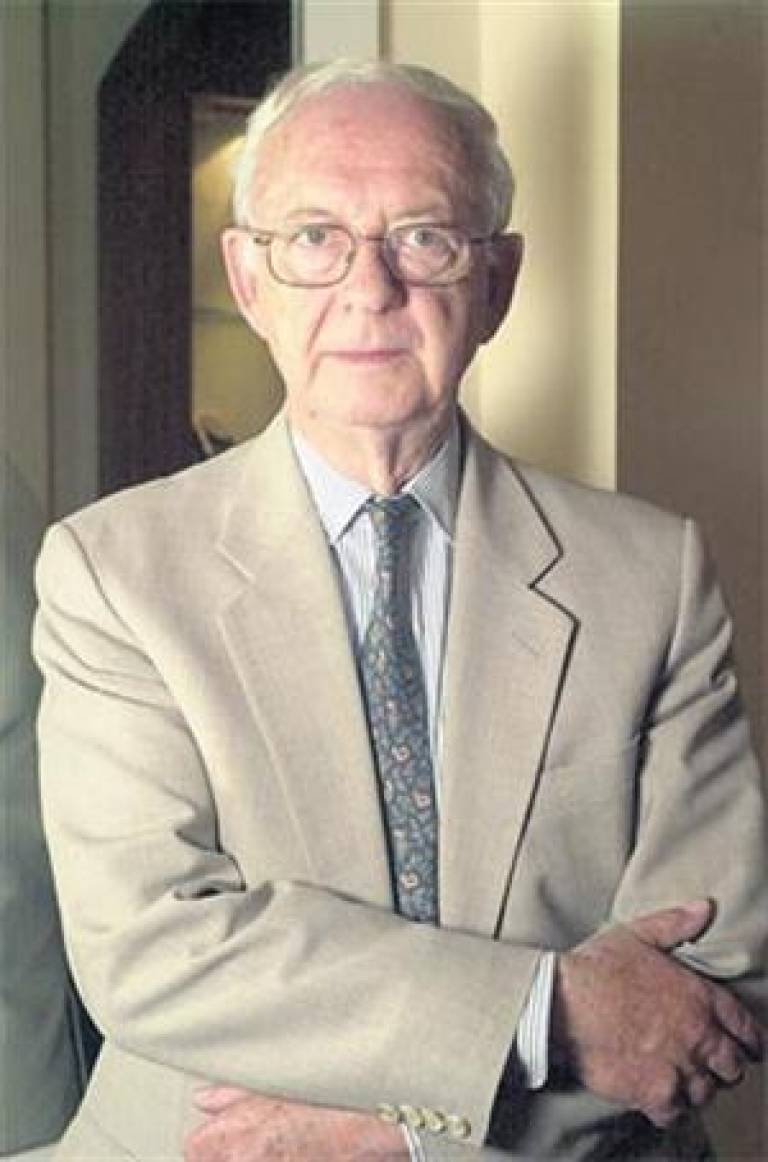Obituary for Professor John Lynch
16 May 2018
Aged 91, Professor John Lynch has died in north London.

Aged 91, Professor John Lynch has died in north London. Born in 1927 in Boldon Collieries in County Durham, one of three small villages which kept a coal-mining tradition till 1982, he identified strongly with north-east England. After three years of military service Professor Lynch took the four-year undergraduate MA (sic!) at the University of Edinburgh, before moving to UCL to read for a PhD in Latin American history supervised by Professor RA (Robin) Humphreys. In the post-war period the UCL History Department was the national pioneer of modern Latin American history, just as it was of ancient history of the Near East. In 1954 Professor Lynch was appointed a lecturer in history at the University of Liverpool. He had both to teach broadly on modern, including Irish, history, and to complete his thesis on late Spanish colonial history, much of it researched in the imperial archives at Seville, a city for which he retained a deep affection.
In 1961 Professor Lynch returned to the UCL History Department, where he was successively a lecturer, reader and professor. He shared with Dr Leslie Bethell the task of setting up a new Main Paper in Latin American history for the federal BA degree in History (this was the heyday of federalism in the BA History degree), which students attended from Kings, SOAS, LSE, the then Queen Mary College and Goldsmith's, as well as the UCL History and Spanish Departments. He also launched a course on 'Spain and the Empire' and a Special Subject on the Independence of Spanish America. In 1974 Professor Lynch moved to the newly founded Institute of Latin American Studies as its second Director. He retired in 1987. He is remembered by his research students as an assiduous and supportive supervisor. They later taught at universities as diverse as Warwick, Exeter, Pennsylvania and Toronto. He was similarly supportive to conscientious and diligent undergraduates and MA students.
Professor Lynch had already written a series of major books before his retirement . Perhaps the most important of these was his two-volume work of synthesis, 'Spain and the Hapsburgs'. In retirement he continued to write extensively, publishing his last book, the ambitious 'New Worlds - A Religious History of Latin America' in 2012. This is interesting for its breadth and depth, and, in particular, for its indictment of the lack of a sustained humanitarian response to black slavery from the Vatican, and for its attribution of the rise of theology of liberation to the failings of social Catholicism. (An accurate bibliography of his works can be found on Wikipedia.)
Professor Lynch was seldom sympathetic to the liberal trends of the 1960s; nor was he an advocate of the orthodoxies of managerialism and marketisation from the fin-de-siècle. He was appalled by the financing of the universities by high fees, and regarded the reduction of eighteen-year olds to indebtedness as evidence of an indefensible social irresponsibility in government, the political parties and the banks. He was diffident about some new pedagogic trends, like student appraisal forms, which he encountered for the first time while teaching in retirement at William and Mary College in Virginia. He was reassured when his conscientious teaching was rewarded by positive comments from undergraduates. He would be delighted to learn that a new appointment has now been made by the Department in the history of the Hispanic World. Professor Lynch is survived by his wife Wendy, five children and several grandchildren.
This piece was contributed by Christopher Abel, who came to UCL History in 1974 as a Lecturer in Latin American History and remained with the department until he retired six years ago.
 Close
Close

